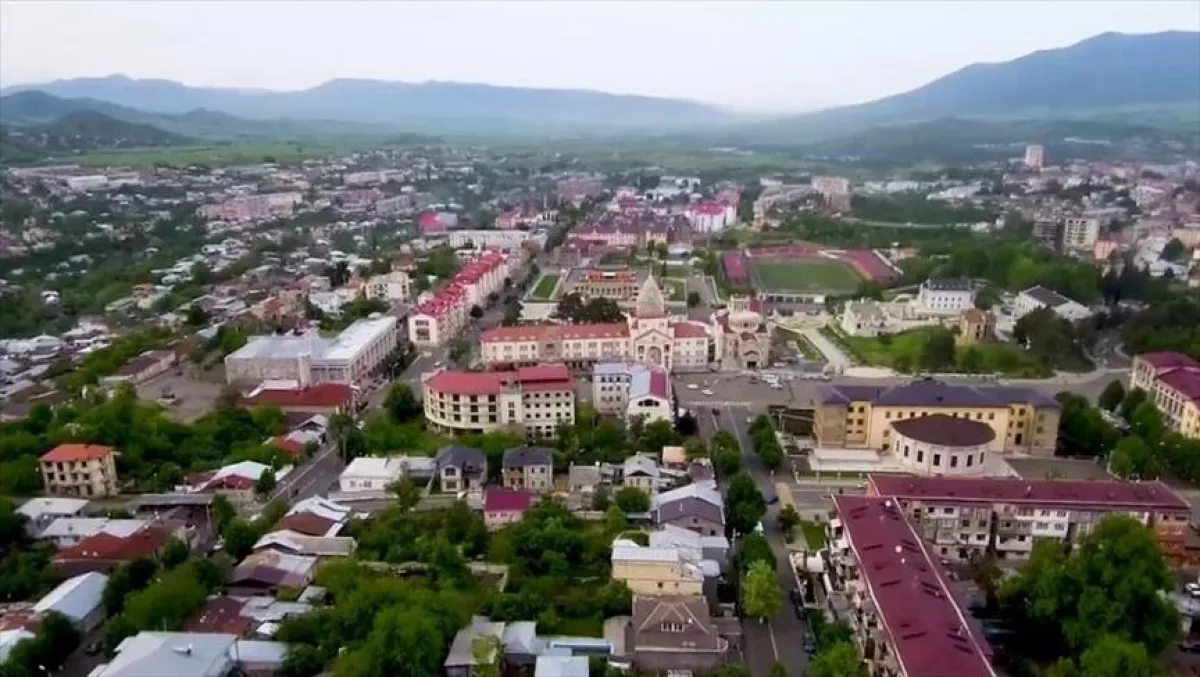US "soft power" strategy in Armenia Cultural program and its misrepresentation
Over the summer months, the Syunik Regional Library (that's how Zangezur is called in Armenia) hosted 27 educational and cultural events. The library saw a total of 17,364 visits and registered 1,201 new readers. A "Summer School" program was implemented, during which visitors participated in English language courses, watched cartoons and movies, read books, and engaged in games and quizzes.
It’s a scene straight out of a Chekhovian idyll—reminiscent of the leisure pursuits of semi-impoverished gentry at their summer retreats. One could almost script a sequel to An Unfinished Piece for a Mechanical Piano, but with an Armenian twist. While educational and cultural events are undeniably valuable and necessary, there is a critical caveat. Their impact hinges on the selection of books read, the cartoons and films watched, and the themes of the quizzes conducted. My skepticism arises from a particular circumstance: Kristina Kvien, the US Ambassador to Armenia, recently visited the library’s "American Corner" and met with individuals "forcibly displaced from Nagorno-Karabakh." During this visit, a memorandum of understanding was signed between the embassy and the "American Corner."

Here is an overview of what the "American Corner" represents: these are informational and resource centers established with the support of the US Embassy, based within regional libraries. There are over 600 of these centers worldwide, spanning 137 countries. Their primary objective is to foster mutual understanding between the people of the host country and the United States by providing information on US history, economy, education, and cultural and social life. To my knowledge, this program has been active in Azerbaijan since 2007 and as the initiative itself is generally considered valuable and worthwhile.
The decision of the US Ambassador to Armenia to meet specifically with individuals allegedly forcibly displaced from Azerbaijan is certainly intriguing—perhaps a matter of "soft power." While the Ambassador has every right to engage with whomever she deems appropriate, one might question whether the US
Ambassador in Azerbaijan has similarly met with representatives from the Western Azerbaijan community, who were indeed forcibly displaced from Armenia due to violence and pogroms—let’s call it what it was. The expulsion of Azerbaijanis from Armenia in 1987 amounted to genuine ethnic cleansing, which, for some reason, the international community seems to ignore. Though, why "for some reason"? It’s clear that it’s due to a "religious-ethnic dimension."
As for those "forcibly displaced from Nagorno-Karabakh," let’s not distort the facts. In early October 2023, a UN mission visited the liberated Karabakh and published a report which states unequivocally:
“the mission visited the city of Khankendi, where the team met with the local population and interlocutors and saw first-hand the situation regarding health and education facilities. In parts of the city that the team visited, they saw no damage to civilian public infrastructure, including hospitals, schools and housing, or to cultural and religious structures…The mission did not come across any reports – neither from the local population interviewed nor from the interlocutors - of incidences of violence against civilians following the latest ceasefire…The mission did not observe any destruction of agricultural infrastructure or dead animals from the road.”
The full text of the report is available on the official UN website, and further comments are unnecessary.
Rest assured, we in Azerbaijan have deep respect for international court rulings, UN resolutions, and international organizations in general—but not without limits. I firmly believe that until Azerbaijanis displaced from Armenia are permitted to return to their homes, discussions about the return of Armenians to Azerbaijan are premature. Don’t waste your time or even broach the subject.

In the past, before the local anti-terrorist operation conducted in September 2023 (which was executed impeccably within a record time of 23 hours and just over 40 minutes), we had already offered Armenians who wished to remain in Azerbaijan the opportunity to acquire Azerbaijani citizenship. They made their choice and decided to leave the country in an organized manner (and this is well-documented: the entire process of their departure through the Lachin checkpoint was recorded on camera). Furthermore, this offer to "learn Azerbaijani, obtain passports, and stay" was made before the "grey zone" within Azerbaijan was dismantled.
Now, everyone must take into account the current situation and objective reality. The absence of Armenians in Khankendi and its surroundings is due to their voluntary departure from these areas. Additionally, there are no Azerbaijanis around Yerevan, and we are not interested in playing a one-sided game; you will have to manage as best you can. We will adhere to a chronological approach: first, we will return to Western Azerbaijan, and only then will we address all other matters.








